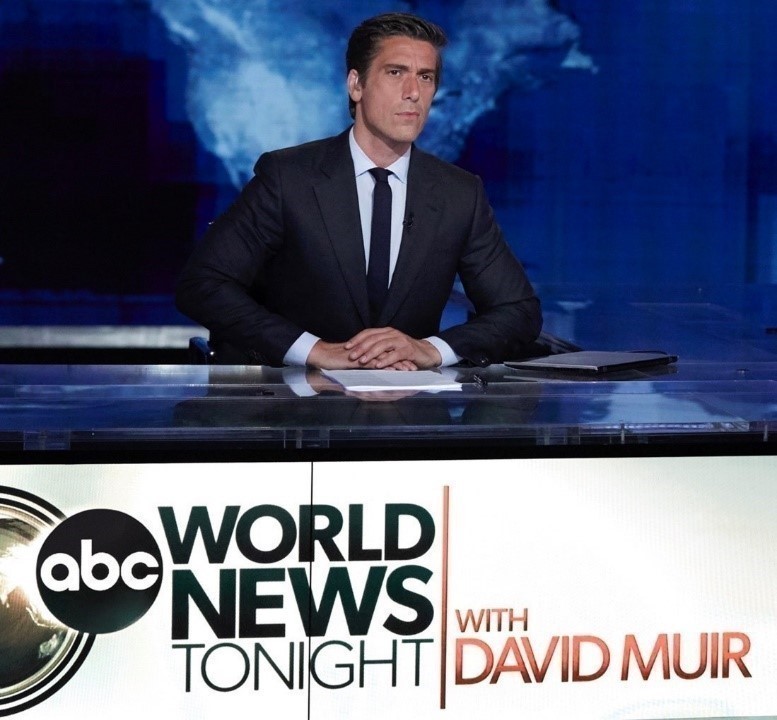WHEN: Today, Thursday, January 18, 2024
WHERE: CNBC’s “Squawk on the Street”
Following is the unofficial transcript of a CNBC interview with Trian Partners Founder & CEO Nelson Peltz on CNBC’s “Squawk on the Street” (M-F, 9AM-11AM ET) today, Thursday, January 18th. Following are links to video on CNBC.com: https://www.cnbc.com/video/2024/01/18/nelson-peltz-on-disney-proxy-fight-the-company-is-not-being-run-properly-board-oversight-is-awful.html and https://www.cnbc.com/video/2024/01/18/nelson-peltz-disney-board-has-underperformed-the-sp-500-on-every-measure.html.
All references must be sourced to CNBC.
JIM CRAMER: Alright, we got a special guest joining us right now and that’s Nelson Peltz founding partner and Trian Partners with a bit of news. So, Nelson, good to see you. Alright, let’s go right to work. Apparently you’re not happy with the direction of Disney and Bob Iger. So you really aren’t going for it. I wanted to get a sense of what you think is fortunate and unfortunate about the current situation at Disney and the board.
NELSON PELTZ: First, let me tell you what to say. I want to say good morning to David and to Carl. Thank you for having us here today. You know, today is an important day we filed our preliminary proxy statement and we’re opening our website which is restored the magic and we did all that because we love Disney. We love Disney and it saddens me that the board didn’t welcome me because our goal is just to work with them, to help them and help them make the company better. Which frankly we have a history of doing you know, what was interesting Jim is last week we went, seven of us from Trian, went to Disney World in Orlando. And it was fascinating because we went not the way board, directors, family, friends go we didn’t have any special passes. We didn’t have any tour guides, didn’t have any leg breakers – didn’t have any line breakers, didn’t have any leg breakers either. And everybody was nice I mean, Magic Kingdom and the Hollywood Studios were terrific. The people are wonderful. All the employees were smiling and that’s probably in large part because they didn’t own any Disney stuff. That’s the problem here. This company is just not being run properly. The board oversight is awful. It really is. The park, as I said certain rides were great but you can see it’s getting a bit long in the tooth. They need more capital invested. They need more capital invested now because the competition is getting keener. You’ve got Comcast opening 500 acres right down the road in two years with a brand new park. They’re also opening parks in Chicago, opening up a park in Texas, Chicago, Las Vegas, and these, this is where all the value today in this stock price resides.
CRAMER: But Nelson, I understand from the background to solicitation, you’ve had as many as 20 meaningful interactions with the board. Why is that not enough?
PELTZ: Come on, Jim. You know as well as when you’re on the board, you have a vote. People need to listen to you. Management need to hear your position. They offered me to come on board last year as a visitor, a guest visitor on occasion. That’s not going to do it. We’ve been around this stuff forever. I think we’ve been on more boards than any company in the world. And we’ve gotten unbelievable results. And we did it at the end of the day without breaking any glass. I mean think about it. Even the proxy fights. The CEO stayed on. They worked with us, some became advisory partners to us… David Gill said the most wonderful things about us. Look what the stock did that stock for 10 years stayed around in the 70s. We got on the board. It went from the 70s to 160. Come on. It didn’t happen by accident.
DAVID FABER: Nelson, it’s David. I mean, listen, I feel like it’s deja vu because we had this conversation with you a little over a year ago when you were trying to get on the board and then you decided not to and they’re saying the same thing they said then too which is they question the relevant experience that you have in terms of the entertainment media business, and why you would add anything. They of course say that they have an incredibly well stocked board of people who are fully capable of holding the management team accountable. And again, you know, what’s the plan like other than saying they gotta do better? What’s the plan?
PELTZ: David, you asked it just like I wanted you to. I mean, as written first of all, this board from Bob, every independent director has underperformed the S&P on every measure one year, three years, five years, ten years. How much more do we have to go? How long do we have to continue to suffer with this great board? By the way, they said I have no media experience. I don’t claim to have any but I will tell you I don’t think they have media experience. They broke a record this year. Do you know that the last five movies in a row were losers. Now if that comes with media experience, I want a guy who doesn’t have a media experience. So David, let’s deal facts. The company is underperforming. I made a run at them last year. They promised they were going to improve things. I took them at their word. Things got worse, the stock went down, results got worse. Okay, so no more I can’t continue to give them more opportunities.
FABER: Understood but to be fair, don’t you need to be fair to compare it to the overall Entertainment Group. I mean, this is a unique period in time in which as you well know there are headwinds and changes that are generational in terms of trying to deal with the move to direct to consumer and make it profitable. So you know, comparing to the S&P may be a bit unfair, don’t you think?
PELTZ: Oh really I mean… I mean, look at Netflix, Netflix’s last reporting period did 30 billion in sales, 20% margin. Okay, then you have Warners, they did 30 billion in sales in media with a 20% margin. Disney, the big daddy did 50 billion in sales, a 6% margin. Now, that’s the competition. Those are the guys we’re all suffering through a change from features to streaming. Some have been able to cope with it beautifully. Plus this company, Bob said it in 2015 and 16 that streaming was a real issue. It was coming, it was here to – it was gonna continue to grow. He said that back then. And then what happened? They did nothing and look what happened to ESPN, the crown jewel of Disney continued to lose subscribers, lose value, and now they’re negotiating deals with ESPN out of total weakness. They could have made deals on ESPN in 15, 16, 17, 18 when they saw this streaming thing coming they said it directly and did nothing about it.
CRAMER: Ok so they did miss that but we do get a kind of a flavor of what Disney feels about the person you’d like to have on the board besides you… It does sound like he was a stalking horse for the largest shareholder… I don’t find that wrong, but they do make it sound like that’s something wrong there and that Bob Iger broke Mr. Perlmutter’s heart when Mr. Rasulo was basically fired, passed over I should say. This result is he better – does he know more than say James Gorman about the entertainment business.
PELTZ: At Disney? Sure. I know James. I don’t know how many times James has been to the park. I don’t know what experience James has with Disney. And oh, by the way, James who I liked very much, was given a board seat. He didn’t have that with plan for the company. Hold it – he didn’t have to set a goal for the company. He got invited on the board. Okay. I’ve got to go through these bells and whistles. Hey, guys. I’m the largest shareholder in this company, the largest independent chair.
FABER: I want to come back to that for a second. But, are you? I mean, Perlmutter is. I still don’t really understand that. Let me ask the question because I am curious about this… right you give, you know 25 plus million of the shares that you are voting so to speak are Ike’s and then try and owns my understanding is seven plus million. What’s your relationship with Perlmutter? Is he paying you, are you getting fees somehow, like you’re doing an awful lot here that really wouldn’t seem to actually add the economic value for Trian Holders given your relatively small ownership of Disney when you take out Perlmutter’s stock.
PELTZ: David, I am thrilled you asked that question. Okay. Thrilled, okay. Because every fund around has investors, whether it’s a sovereign fund, and whether it’s a bunch of individuals. What the hell’s the difference? It’s money. These guys want to make money. That’s where they get money. We just saved one step. I gave him some shares. He said, hey, guys, you figure it out. I don’t want to come back to the company. I don’t want to be an officer. I don’t want my job back, okay. I just want to make money on my stock. Because oh, by the way, when I’m gone, it’s all going to charity.
FABER: But that’s not try and fund money that went into buying his stock. He didn’t buy it from him. He just he’s lumped it in with your ownership stake.
PELTZ: David, what’s the difference? If a guy gives me a check, or gives me shares, I have the full right to vote it to do whatever I want with it. What’s the difference than if CalPERS gives me 100 million bucks or they give me shares in a company. There’s no difference. It’s all under my control.
FABER: Understood, but your share – your fund holders are only going to benefit from the increase in value on the shares that Trian holds. They’re not going to benefit from the increase in value that Perlmutter gets from your efforts.
PELTZ: Are you asking me or are you telling me?
FABER: No, I’m asking. I’m asking.
PELTZ: Ok, let me tell you something. The investors in what we call our SPVs, they wind up making money on how well we do. Now if they’re 10% of an SPV they get 10% of the ups. If they’re 50, they get 50. There is no difference. Okay, you want to talk about this all day long. That’s fine.
FABER: No, we can move on –
PELTZ: But you want to talk –
FABER: I was interested in getting an answer on that.
CRAMER: But I do want to know, Nelson, the last time you were on, it’s very clear that you had a successful trade. Can you tell me how did Trian do when – rattled and then when the stock ran up to 117. Did you sell all your stock?
PELTZ: Sold Half.
CRAMER: Half.
PELTZ: And you know what I did, Jim? I want to tell you, Jim, and I’m glad again you asked that question. The stock was 118 when I made the decision and the announcement that we were going to give Bob a chance. 118. Now, I could have sold all my stock at 118, I could have sold half my stock at 118. But you know what I did? I waited until the market settled instead of taking advantage. And by the way, there was no law against it if I sold my stock before I made –
CRAMER: Not at all. Make that clear.
PELTZ: Let me just finish. I waited til it settled and I sold it at 113. And anybody could have sold it then. I sold half at 113 and kept half. I wish I sold –
CRAMER: Absolutely. But I want people to understand that. That’s absolutely fair. But I do want to come back to what is obviously a degree of antipathy between – maybe I’m reading this wrong – between you and Mr. Iger and if there were substantive talks, then I would have to believe maybe they brought some of the things that you said. Maybe you have a white paper to the board itself. The board does have some very serious people on it. Were they not given or apprised of some of the ideas that you had?
PELTZ: Jim, they have a lot of substantive people on the board, but let me give you this fact. The entire board, including Bob, own less than $15 million worth of stock each. That’s not a hell of a lot of commitment to this company given the fees, etc. that they get from being a director or an officer of his company. And when you want to talk about Bob, Bob is taking a billion dollars out of this company since he’s been there. A billion dollars.
CRAMER: Do you think he’s overpaid?
PELTZ: I gotta finish this statement. Last year, he got paid 31 and a half million dollars. Okay. Earnings were down. They missed everything. The stock was down. Everything went bad. And he got 31 and a half million dollars. You know, I don’t understand what this board is doing. I don’t know what they’re there for other than friends of Bob. You know, that is what this is all about. They are friends with Bob, it is a hand-picked group of directors who are not doing their job.
CRAMER: Well I did just want to point out that being that board didn’t get hurt as badly as I thought if they have that little money in the stock, Nelson. I thought they were going to be clobbered. They obviously haven’t been hurt that bad.
PELTZ: You’re 100% right, Jim. They didn’t lose money like the great – the funds, Mr. Perlmutter, everybody, everybody’s pension fund. Those are the guys who took the gas. Not the board, not the inside directors. I mean, you know, this guy has been paid so much money and I want to work with Bob. I want you to know my goal is not to do anything but work with Bob. And Jim, you and David and Carl all know that we’ve worked with people at P&G, look at the phenomenal success. They spent $100 million to keep me off that board. The stock was in the 70s, I got off three and a half years later, this stock was about 160. But everything was up – margins, sales, market shares. All of that stuff. Okay, that’s what we do. And then David Taylor, who we fought before I got on the board said the nicest things about me when I got off. They gave me a beautiful price. Okay, a memorabilia. And guys, we are not there to embarrass anybody, we are not there to hurt anybody. We want to help the shareholders. And let me tell you, these shareholders have suffered. You can tell me well, maybe they shouldn’t be compared to one in three years because streaming. How about 1, 3, 5, 10 – every single period in time they have underperformed the S&P. David, do you want to go back ten years?
FABER: No, I hear you, listen, and that’s a compelling argument you’re making. Now that said, Bob Iger has made it very clear that he’s there, you know, cutting costs significantly. He started a year ago, and he’s only increased that, Nelson. He’s admitted that they kept – that they took their eye off the ball a little bit when it comes to motion pictures and some animation. It seems as though they’re taking corrective action there. And they do have, they say, a plan to get streaming to a positive cashflow place soon. Relatively soon. Not to mention, obviously considering strategic options for ESPN. I mean, they seem to be doing many of the things that a year ago you wanted them to do. And yet you continue to persist and wanting to be on this board.
PELTZ: But they’re not, David. The promises Bob made when he came on the board last year, the end of ’22, have not been kept. If they were kept, I wouldn’t have resumed my proxy fight. I stopped the proxy fight because of the promises he made. Okay? I trusted him and hoped that he was gonna do it. And I said I’m stepping down. Not because I was worried about having a proxy fight. You know that keeps a guy like me young.
CRAMER: Nelson, I’m sorry to be – I don’t mean to be rude, but I know we have to move on. I do, of course, welcome Bob Iger to call in. Mr. Rasul, we’d like to hear from him, Mr. Perlmutter of course. But I do point out that Mr. Iger seems extremely opposed to you. But if we had a vote here, I think given the total shareholder return you certainly have a shot. Let’s leave it at that and see what the opposition says. I want to thank you Nelson for sharing the pictures of course at Disney World, obviously you had a good time. And for coming on “Squawk on the Street.” Good to see you.
PELTZ: Thanks, Jim, David, Carl. Appreciate it. Have a great day guys.


